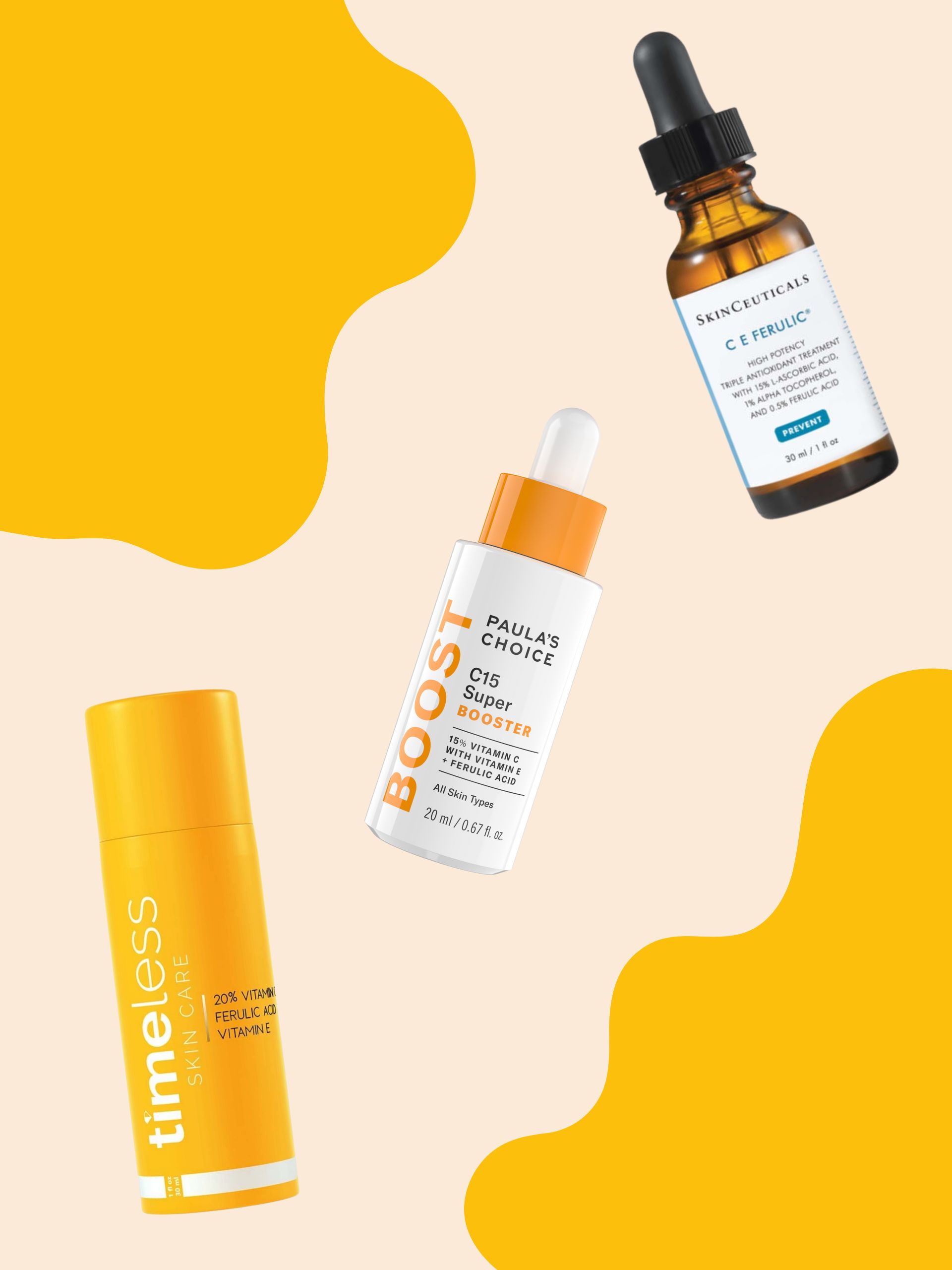Out of all the products in a skincare routine, face serums are the ones worth the investment. Consider them the superheroes for your face, packing a powerful punch of concentrated ingredients to target specific concerns.
Indeed, you could create a decent routine with just cleansers and moisturisers alone (there’s nothing wrong with this!), but face serums add that extra layer of care to create a visible improvement to specific concerns like acne, breakouts, premature aging, hyperpigmentation and more.
So, why are serums worth the hype (and sometimes the price tag)? There’s a lot to explore in the world of these potent little bottles – their benefits, how they fit into a skincare routine, and what ingredients to look for based on your skin type.
What is a Face Serum?
Imagine a lightweight, fast-absorbing potion packed with the good stuff – vitamins, antioxidants, and other active ingredients. That’s a face serum!
A face serum is a lightweight, fast-absorbing liquid designed to deliver high concentrations of active ingredients to the skin. In other words, it’s packed with the good stuff – vitamins, antioxidants, peptides, exfoliating acids and other active ingredients.
Unlike moisturisers that focus on hydration and creating a barrier, serums have smaller molecules that penetrate deeper layers of your skin, delivering a much higher concentration of targeted ingredients. Think of them as laser-focused treatments for specific concerns like wrinkles, dryness, or uneven skin tone.
Where Do Facial Serums Fit in a Skincare Routine?
Face serums should be applied after cleansing and toning but before moisturising. This allows the active ingredients to be absorbed more effectively.
After cleansing your face and patting it dry, apply a few drops of your chosen serum to your face and neck. Gently pat it in, and then follow up with your moisturiser to lock in all the goodness.
Typically, you would use a serum twice daily – once in the morning and once at night – depending on the type and your skin’s needs.
Now, Let’s Talk Types
The world of serums is vast, with a variety to address almost any skin concern. Here’s a breakdown of some of the most popular types and what they can do for you:
Hydrating Serums
Which Skin Type It’s Best For
Hydrating serums are ideal for all skin types, especially dry, dehydrated, and mature skin. They provide an extra layer of moisture and help to maintain the skin’s barrier.
Benefits and How They Work
Hydrating serums work by attracting and holding moisture in the skin. They often contain humectants like hyaluronic acid, which can hold up to 1,000 times its weight in water, keeping the skin plump and hydrated.
Hydrating serums are all about plumping up your skin and keeping it dewy. Research has shown that using humectants like hyaluronic acid provides excellent skin hydration. [1]
Ingredients to Look Out For
- Hyaluronic Acid: A powerful humectant that draws moisture into the skin.
- Glycerin: Another effective humectant that helps to retain moisture.
- Panthenol (Vitamin B5): Soothes and moisturizes the skin.
- Aloe Vera: Provides hydration and has calming properties.
When to Use It
Hydrating serums can be used both in the morning and night. Apply a few drops to clean, damp skin and follow with your moisturiser to lock in the hydration.
Product Recommendation
- The Ordinary Hyaluronic Acid 2% + B5: A budget-friendly serum that delivers intense hydration.
Anti-Aging Serums
Which Skin Type It’s Best For
Anti-aging serums are suitable for mature skin and those starting to notice the first signs of aging. They help to reduce the appearance of fine lines, wrinkles, and loss of elasticity.
Benefits and How They Work
These powerhouse serums target the signs of aging by stimulating collagen production, reducing the appearance of wrinkles, and promoting cell turnover, resulting in smoother, firmer skin.
This study discovered that users of facial serums saw increased skin brightness, hydration, and fewer wrinkles. [2]
Ingredients to Look Out For
- Retinoids (Retinol, Retinaldehyde, Retinoic Acid): Increases cell turnover and boosts collagen production.
- Niacinamide (Vitamin B3): Reduces the appearance of fine lines and improves skin elasticity.
- Peptides: Short chains of amino acids that help to build proteins in the skin.
When to Use It
Anti-aging serums are typically best used at night because retinoids can make the skin more sensitive to sunlight. Apply after cleansing and toning and follow with a moisturiser.
Best Product Recommendation
- Olay Regenerist Retinol 24-Night Serum: This serum is an effective and affordable option that targets fine lines and wrinkles. This gentle yet effective formula smooths wrinkles and brightens skin.
Antioxidant Serums
Which Skin Type It’s Best For
Antioxidant serums are great for all skin types but are particularly beneficial for those exposed to environmental damage, such as pollution and UV rays.
Benefits and How They Work
Antioxidant serums fight free radicals, those unstable molecules that damage skin cells and contribute to signs of aging and uneven skin tone.
Ingredients to Look Out For
- Vitamin C (Ascorbic Acid): A potent antioxidant that brightens the skin and reduces signs of aging.
- Vitamin E (Tocopherol): Protects the skin from free radical damage and has moisturising properties.
- Ferulic Acid: Enhances the stability and efficacy of vitamins C and E.
When to Use It
Antioxidant serums are a great addition to your morning routine. They protect your skin from environmental damage throughout the day. Apply them after cleansing and toning, before your moisturiser and sunscreen.
Best Product Recommendation
- SkinCeuticals C E Ferulic: This lightweight formula protects against free radicals and evens out skin tone
Vitamin C Serums
Which Skin Type It’s Best For
Vitamin C serums are suitable for all skin types, particularly those dealing with hyperpigmentation, dullness, and uneven skin tone.
Benefits and How They Work
Vitamin C serums are brightening superstars! They work by preventing melanin production, which can lead to dark spots and hyperpigmentation.
Research shows that they also boost collagen production, provide photoprotection from ultraviolet A and B, and improve a variety of inflammatory conditions. [3]
Ingredients to Look Out For
- L-Ascorbic Acid: The most potent form of vitamin C.
- Ascorbyl Glucoside: A more stable but less potent form of vitamin C.
When to Use It
Vitamin C serums are best used in the morning to take advantage of their protective benefits. Apply after cleansing and toning, before your moisturiser and sunscreen. Be sure to avoid using expired products as this may be harmful to your skin.
Best Product Recommendation
- Drunk Elephant C-Firma Day Serum: This is a potent vitamin C serum that brightens and firms the skin.
Exfoliating Serums
Which Skin Type It’s Best For
Exfoliating serums are suitable for all skin types, especially those dealing with texture issues, clogged pores, and acne-prone skin.
Benefits and How They Work
Exfoliating serums help to remove dead skin cells that can clog pores and lead to breakouts. They come in two main types: chemical exfoliants (AHAs and BHAs) and physical exfoliants (containing small scrubbing particles).
Ingredients to Look Out For
- Alpha Hydroxy Acids (AHAs): Such as glycolic acid and lactic acid, which exfoliate the surface of the skin.
- Beta Hydroxy Acids (BHAs): Such as salicylic acid, which penetrate deeper into the pores to clear out congestion.
When to Use It
Exfoliating serums are typically used at night. Start with once or twice a week, gradually increasing frequency as your skin builds tolerance. Apply after cleansing and toning, and follow with a moisturiser.
Best Product Recommendation
- Paula’s Choice Skin Perfecting 2% BHA Liquid Exfoliant: This serum uses the power of BHA to unclog pores and promote smoother, clearer skin.
The Bottom Line
So, are face serums worth the splurge? Absolutely. Here’s a quick recap to help you decide:
- Targeted Treatments: Serums address specific concerns like wrinkles, dryness, or uneven skin tone, making them a powerful addition to your routine.
- Potent Ingredients: With a higher concentration of active ingredients, serums deliver noticeable results.
- Often lightweight in texture: The lightweight formula of serums feels comfortable on all skin types and layers seamlessly under your moisturiser.
Nonetheless, always do your research and find a serum that targets your specific needs for that radiant, healthy glow.
REFERENCES
- Draelos, Zoe Diana, et al. “Efficacy evaluation of a topical hyaluronic acid serum in facial photoaging.” Dermatology and therapy 11.4 (2021): 1385-1394.
- Garre, Aurora, et al. “Antiaging effects of a novel facial serum containing l-ascorbic acid, proteoglycans, and proteoglycan-stimulating tripeptide: Ex vivo skin explant studies and in vivo clinical studies in women.” Clinical, cosmetic and investigational dermatology (2018): 253-263.
- Farris, Patricia K. “Topical vitamin C: a useful agent for treating photoaging and other dermatologic conditions.” Dermatologic surgery 31 (2005): 814-818.
- Lindberg, S. (2020, September 15). What Are the Benefits of Using a Face Serum? Healthline. https://www.healthline.com/health/benefits-of-face-serum



